23/11/2023 | Co-authors Jess Dart, Lucia Boxelaar, Zazie Tolmer
In October 2023 Clear Horizon launched the “Systems Transformation Unit”. The purpose of the unit is to actively contribute to challenging and rethinking evaluation practice to support systems transformation movements, efforts, and collaborations.
There is a growing appreciation of the need and urgency to develop systemic and place-based responses to meet the complexity of social and environmental challenges. Many organisations and corporations – whether for profit or not for profit – are collaborating beyond their usual boundaries to contribute to systems transformation.
This has implications for how organisations conceive their strategy, and how they understand their progress and value-add. It also has implications for how measurement and evaluation is done, and how evaluators engage with others.
The primary reason for this new unit is our strong belief that we, as evaluators, and the field of evaluation more generally, have an important contribution to make at this critical juncture. Evaluative thinking is essential in enabling strategic planning and policy reform for systems transformation. Careful consideration of how we invest in and innovate our evaluation practices is important, also because simply continuing business-as-usual evaluation and impact measurement will likely constrain systems transformation.
The Unit is grounded in our shifting view of what sort of evaluation is needed for this context. Our evaluation practices and frameworks need to be adapted in three important ways. We need to:
1. Shift our gaze from the impact of individual programs to looking at portfolios of effort, and how this work interacts with systems transformation and social change. The emergent and messy nature of systems transformation challenges our ability to neatly map causal flows, or measure contribution and attribution of impact for individual programs.
2. Incorporate diverse perspectives and stories that reflect different worldviews and lived experiences. Our methods need to challenge the narrow lens of western, colonial worldviews. That also means moving away from the notion of the evaluator as technical expert and the over-reliance on deductive methods that begin with frameworks that are grounded in western worldviews. We need to work more inductively and flexibly, improvising and adapting methods and tools to emerging insights and patterns, to help stakeholders negotiate power dynamics and make meaning through discernment, deliberation, and feedback.
3. Work collaboratively as learning partners in transdisciplinary ways, rather than as independent objective experts. We need to play the long game, with a sense of urgency and bias for action and building capability.
How will we work?
The Systems Transformation Unit partners with changemakers in two main ways:
Firstly, we work as thought partners with organisations to help shift their focus from programs to systems transformation, by facilitating a strategic re-orientation to systems complexity, learning and impact. For an example of this work, see our work with The Difference Incubator.
Secondly, we support collaborations and intermediaries to accelerate and anchor complex systems transformation. For an example of our work see the work with Our Town.
We will use a variety of frameworks to understand systems behaviours. We will adapt, improvise, and co-create evaluation approaches to meet the moment. We will work to help stakeholders to spot emerging patterns of system behaviour and coherence and changing power dynamics. Our methods will enable changemakers to:
- Make sense of complex situations by facilitating reflection, deliberation, and meaning-making.
- Anchor and frame changing patterns of system behaviour and support changemakers to interpret and act on these, holding the gaze on the system, shaping, and holding the story. This is critical to help sustain alignment with, and coherence of new system patterns.
- Capture social change and systems impact, navigating the challenges of contribution analysis and causal mapping in system transformation.
The new Unit will complement the core work of Clear Horizon in providing digital solutions, MEL consultancy and learning through our academy.
Let’s start a conversation about how we best leverage the transformative power of evaluation as we navigate significant systems transformations in the decade ahead. How are you rethinking your evaluation practice? We would love to hear your thoughts and insights and welcome your feedback on our proposition!






